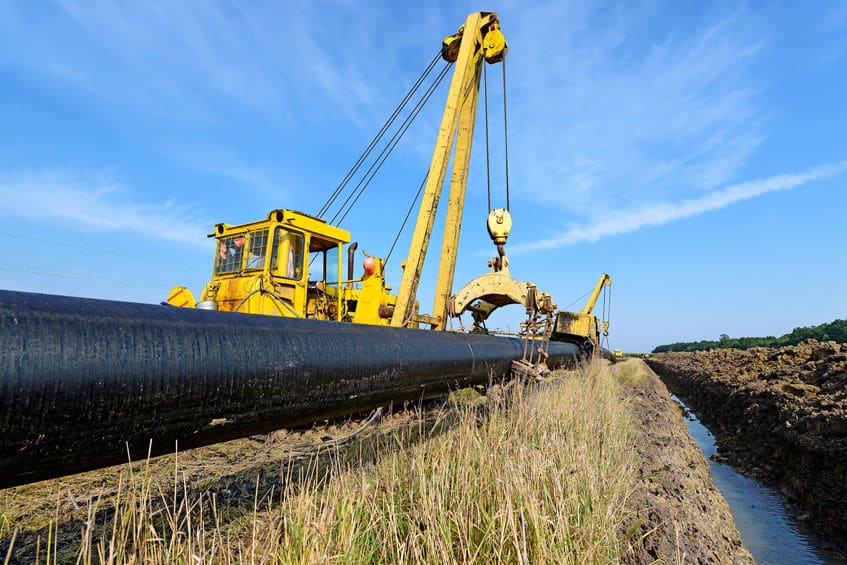
The Pipeline Fight is just beginning for Biden
Note: Pressure rises on both sides as Environmentalist and Unions pressure the President and major Oil and Gas projects.
Now some of those same activists are preparing to mount more fights to stop more fossil-fuel infrastructure. At the same time, several labor unions with Biden’s ear are pushing back against the end of projects that provide their members with high-paying construction jobs.
Attention is already turning east to another cross-border pipeline. Since 2014, the Canadian firm Enbridge has been aiming to replace a nearly 2,000-mile pipe between Alberta and Wisconsin called Line 3 with a higher-capacity tube.
But anti-pipeline advocates are trying to stall the project in Minnesota, raising some of the same concerns they did with Keystone about potential water pollution if the pipe leaks, in addition to locking in higher global temperatures from the burning of more fossil fuels. The proposed Keystone XL oil conduit is meant to deliver Canadian crude from the tar sands of Alberta to U.S. refineries on the Gulf Coast, crossing the border in Montana.
“More than any other project in the U.S., it’s a Keystone clone,” said Andy Pearson, Midwest tar sands coordinator for the Minnesota branch of the green group 350.org, noting the pipeline would transport some of the same Canadian crude Keystone XL would have. “Minnesota is the land of 10,000 lakes, and a huge amount of this would go through wetlands with high water quality.”
Enbridge, a Canadian pipeline company, emphasized replacing the pipeline is safer than leaving the old one in. “The safety and maintenance driven replacement of Line 3 has passed every test during six years of science-based regulatory and environmental permitting review,” spokeswoman Juli Kellner said.
Adding hope to the effort to stop the Line 3 replacement is Gina McCarthy, who voiced opposition to the project over the summer as head of the Natural Resources Defense Council, a major environmental group. Biden later picked her to be his domestic czar on climate change.
With the state greenlighting the project late last year, opponents are pressing Biden to reconsider a final federal water permit for the Line 3 replacement issued by the Army Corps of Engineers under President Trump. For now, the Biden transition team is keeping its head down, declining to comment on Line 3.
There are other potential fossil-fuel infrastructure flash points for the incoming administration.
Another target of activism may again be the Dakota Access pipeline, which tribes have been trying to shut down in federal court. In his own early administration move, Trump sought to resuscitate both Dakota Access and Keystone XL during his first month in office.
Biden’s promise to end drilling leases on federally controlled lands is already a cause for consternation among his allies in oil- and gas-producing states, such as New Mexico and Montana.
And there may also be fights over federal permits for export terminals for liquefied natural gas, or LNG, which were regularly granted under both Presidents Barack Obama and Trump.
During the campaign, Biden was cagey about whether he supports banning the export of fossil fuels after several of his Democratic rivals for the nomination called for doing so. The United States had a moratorium on selling crude oil abroad for four decades until it was lifted by Congress and Obama in 2015.
The fossil-fuel infrastructure fight pits two Democratic flanks — environmentalists and labor unions — against each other.
Biden courted both camps during the presidential campaign as he put together a $2 climate trillion proposal, arguing his plan to slow down global warming would also create millions of high-paying jobs in clean energy.
The former vice president got the endorsement of the United Association of Union Plumbers and Pipefitters over the summer, for example, after committing to approach each pipeline permitting decision on a case-by-case basis, the union said.
Still, the pipe fitting union’s president, Mark McManus, excoriated Biden this week for siding with “fringe activists instead of union members and the American consumer” in his Keystone decision.
Labor groups are making strange bedfellows with big businesses they often do not see eye-to-eye with, including the National Association of Manufacturers, to stress the boon in union jobs such a big construction project would bring.
“If this union project is blocked, workers and families will lose a huge opportunity,” unions and the manufacturers’ organization wrote in a letter to Biden.
Originally published in The Washington Post.

